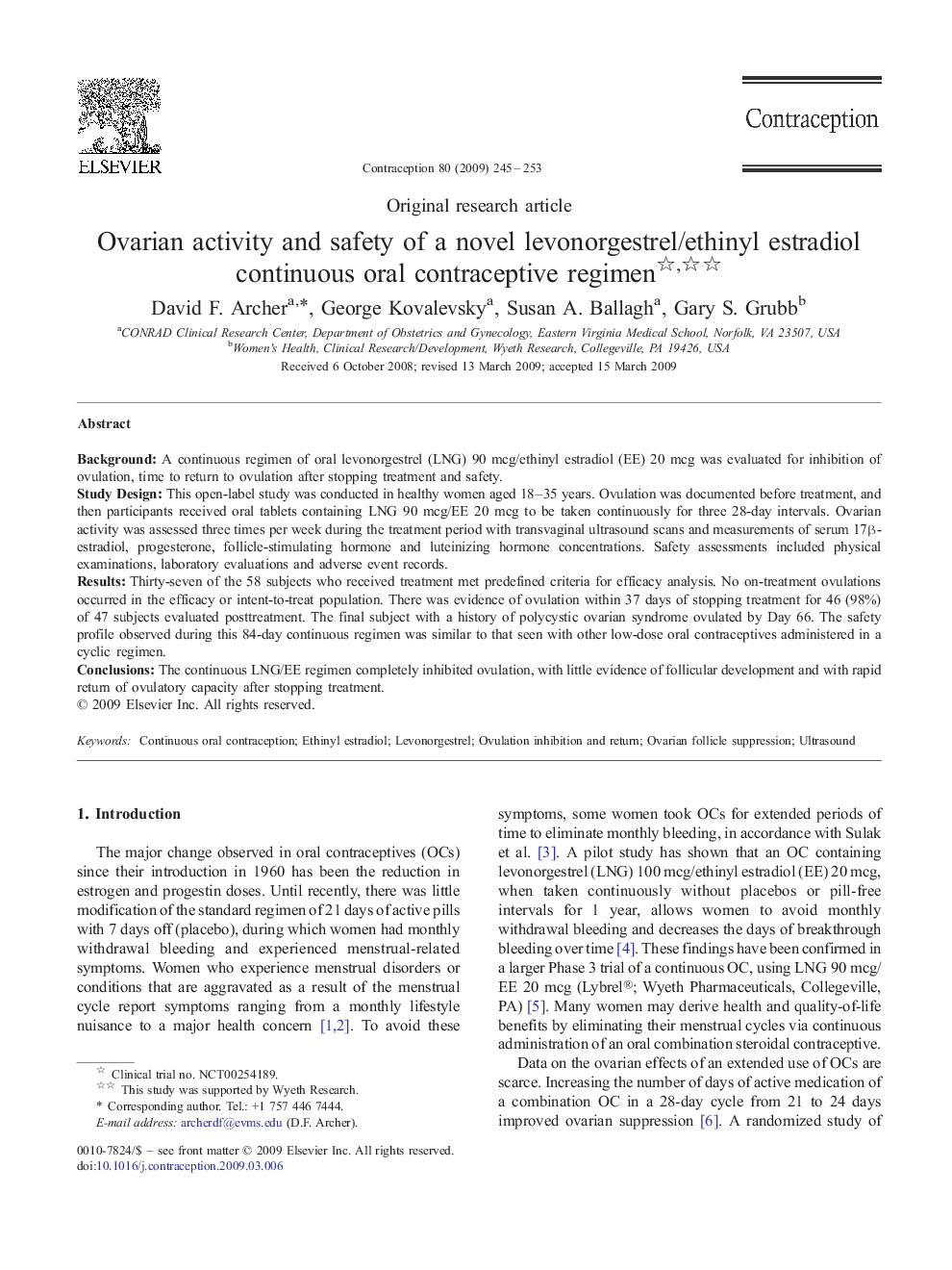| Article ID | Journal | Published Year | Pages | File Type |
|---|---|---|---|---|
| 3915387 | Contraception | 2009 | 9 Pages |
BackgroundA continuous regimen of oral levonorgestrel (LNG) 90 mcg/ethinyl estradiol (EE) 20 mcg was evaluated for inhibition of ovulation, time to return to ovulation after stopping treatment and safety.Study DesignThis open-label study was conducted in healthy women aged 18–35 years. Ovulation was documented before treatment, and then participants received oral tablets containing LNG 90 mcg/EE 20 mcg to be taken continuously for three 28-day intervals. Ovarian activity was assessed three times per week during the treatment period with transvaginal ultrasound scans and measurements of serum 17β-estradiol, progesterone, follicle-stimulating hormone and luteinizing hormone concentrations. Safety assessments included physical examinations, laboratory evaluations and adverse event records.ResultsThirty-seven of the 58 subjects who received treatment met predefined criteria for efficacy analysis. No on-treatment ovulations occurred in the efficacy or intent-to-treat population. There was evidence of ovulation within 37 days of stopping treatment for 46 (98%) of 47 subjects evaluated posttreatment. The final subject with a history of polycystic ovarian syndrome ovulated by Day 66. The safety profile observed during this 84-day continuous regimen was similar to that seen with other low-dose oral contraceptives administered in a cyclic regimen.ConclusionsThe continuous LNG/EE regimen completely inhibited ovulation, with little evidence of follicular development and with rapid return of ovulatory capacity after stopping treatment.
